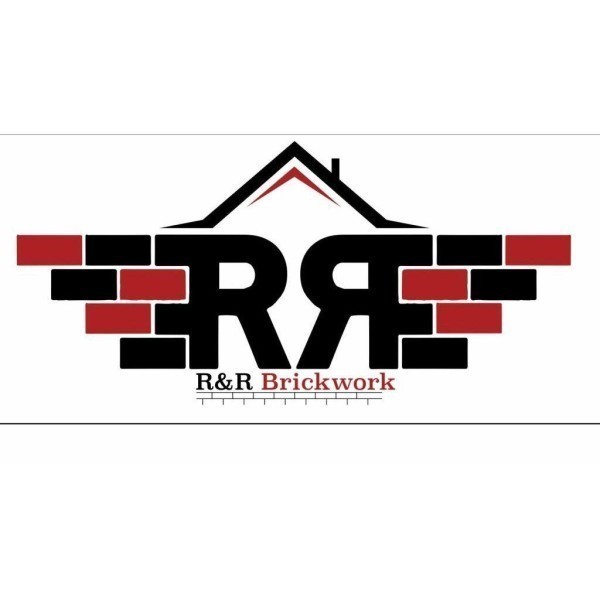Block Paving in Billericay
Search Block Paving in places nearby
- Block Paving in Basildon
- Block Paving in Braintree
- Block Paving in Brentwood
- Block Paving in Brightlingsea
- Block Paving in Burnham-On-Crouch
- Block Paving in Canvey Island
- Block Paving in Chelmsford
- Block Paving in Chigwell
- Block Paving in Chipping Ongar
- Block Paving in Clacton-On-Sea
- Block Paving in Colchester
Understanding Block Paving in Billericay
Block paving in Billericay is a popular choice for homeowners looking to enhance the aesthetic appeal and functionality of their driveways, patios, and pathways. This versatile and durable paving solution offers a range of benefits, making it a preferred option for many. In this article, we'll delve into the various aspects of block paving, exploring its advantages, types, installation process, and maintenance tips, all tailored to the unique environment of Billericay.
The Appeal of Block Paving
Block paving is renowned for its visual appeal and versatility. It provides a neat, organised look that can significantly enhance the curb appeal of any property. The variety of colours, patterns, and textures available allows homeowners to customise their outdoor spaces to reflect their personal style. Moreover, block paving is not just about aesthetics; it also offers practical benefits such as durability and ease of maintenance.
Advantages of Block Paving
- Durability: Block paving is known for its long-lasting nature. It can withstand heavy loads, making it ideal for driveways and areas with frequent foot traffic.
- Low Maintenance: Once installed, block paving requires minimal upkeep. Regular sweeping and occasional washing are usually sufficient to keep it looking pristine.
- Repairable: Unlike other paving solutions, individual blocks can be replaced if damaged, without disturbing the surrounding area.
- Permeability: Many block paving options are designed to allow water to drain through, reducing the risk of flooding and water pooling.
Types of Block Paving
When considering block paving in Billericay, it's essential to understand the different types available. Each type offers unique characteristics and benefits, catering to various needs and preferences.
Concrete Block Paving
Concrete block paving is a popular choice due to its affordability and versatility. It comes in a wide range of colours and shapes, allowing for creative designs. Concrete blocks are durable and can withstand significant wear and tear, making them suitable for driveways and high-traffic areas.
Clay Block Paving
Clay block paving is known for its natural beauty and rich colours that do not fade over time. Although typically more expensive than concrete, clay blocks offer a timeless appeal and are highly durable. They are an excellent choice for those looking to add a touch of elegance to their outdoor spaces.
Natural Stone Paving
Natural stone paving, such as granite or sandstone, provides a luxurious and sophisticated look. Each stone is unique, offering a variety of textures and colours. While natural stone is often more costly, its durability and aesthetic appeal make it a worthwhile investment for many homeowners.
Installation Process of Block Paving
The installation of block paving involves several steps, each crucial to ensuring a durable and visually appealing result. Proper preparation and execution are key to a successful block paving project.
Site Preparation
Before laying the blocks, the site must be thoroughly prepared. This involves clearing the area of debris, vegetation, and any existing paving. The ground is then excavated to the required depth, ensuring a stable base for the paving.
Base Layer Installation
A sub-base layer, typically made of crushed stone or gravel, is laid and compacted to provide a solid foundation. This layer is essential for drainage and stability, preventing the paving from shifting over time.
Sand Bedding
A layer of sharp sand is spread over the sub-base, providing a smooth surface for the blocks. The sand is levelled and compacted, ensuring an even base for the paving.
Laying the Blocks
The blocks are laid in the desired pattern, starting from one corner and working outwards. Care is taken to ensure each block is level and tightly fitted against its neighbours. Spacers may be used to maintain consistent gaps between the blocks.
Jointing and Compaction
Once the blocks are laid, kiln-dried sand is brushed into the joints to lock the blocks in place. The entire area is then compacted using a plate compactor, ensuring the blocks are firmly set and the surface is level.
Maintaining Block Paving
Proper maintenance is essential to keep block paving looking its best and prolong its lifespan. Fortunately, block paving is relatively low-maintenance, requiring only a few simple steps to maintain its appearance and functionality.
Regular Cleaning
Regular sweeping and washing can help prevent the build-up of dirt and debris. A pressure washer can be used for a more thorough clean, but care should be taken to avoid dislodging the jointing sand.
Weed and Moss Control
Weeds and moss can grow between the blocks, detracting from the appearance of the paving. Regularly removing these growths and applying a weed inhibitor can help keep the paving looking tidy.
Re-sanding Joints
Over time, the jointing sand may be washed away or compacted. Re-sanding the joints periodically can help maintain the stability of the paving and prevent movement.
Choosing the Right Block Paving Contractor in Billericay
Selecting a reputable contractor is crucial to the success of your block paving project. A skilled and experienced contractor will ensure the paving is installed correctly and to a high standard.
Research and Recommendations
Start by researching local contractors and seeking recommendations from friends or family. Online reviews and testimonials can also provide valuable insights into the quality of a contractor's work.
Requesting Quotes
Obtain quotes from multiple contractors to compare prices and services. Be wary of quotes that seem unusually low, as they may indicate subpar materials or workmanship.
Checking Credentials
Ensure the contractor is properly licensed and insured. This provides peace of mind and protection in case of any issues during the project.
Cost Considerations for Block Paving in Billericay
The cost of block paving can vary significantly depending on several factors, including the type of blocks used, the size of the area, and the complexity of the design.
Material Costs
Different types of blocks come with varying price tags. Concrete blocks are generally more affordable, while natural stone and clay blocks tend to be more expensive.
Labour Costs
Labour costs can vary based on the contractor's experience and the complexity of the project. More intricate designs or larger areas may require more time and effort, increasing the overall cost.
Additional Expenses
Consider any additional expenses, such as site preparation, waste removal, and sealing. These costs can add up, so it's essential to factor them into your budget.
Environmental Impact of Block Paving
Block paving can have environmental implications, particularly concerning water drainage and heat absorption. However, there are ways to mitigate these impacts and make block paving more eco-friendly.
Permeable Paving Options
Permeable block paving allows water to drain through the surface, reducing runoff and the risk of flooding. This environmentally friendly option is particularly beneficial in areas prone to heavy rainfall.
Reflective Materials
Choosing lighter-coloured blocks can help reduce heat absorption, minimising the urban heat island effect. This can contribute to a cooler and more comfortable outdoor environment.
Frequently Asked Questions
- What is the lifespan of block paving? Block paving can last for several decades with proper maintenance, typically around 20-25 years.
- Can block paving be installed in any weather? It's best to install block paving in dry conditions to ensure proper setting and compaction.
- How do I prevent weeds from growing between the blocks? Regular maintenance, including sweeping and applying a weed inhibitor, can help prevent weed growth.
- Is block paving suitable for sloped areas? Yes, block paving can be installed on slopes, but proper drainage and installation techniques are essential.
- Can I change the pattern of my block paving? Yes, individual blocks can be lifted and relaid in a new pattern if desired.
- Do I need planning permission for block paving? Generally, planning permission is not required for block paving, but it's advisable to check with local authorities.
Enhancing Your Outdoor Space with Block Paving
Block paving in Billericay offers a versatile and attractive solution for enhancing outdoor spaces. Whether you're looking to upgrade your driveway, patio, or garden path, block paving provides a durable and customisable option that can transform the look and feel of your property. By understanding the different types of block paving, the installation process, and maintenance requirements, you can make informed decisions and enjoy the benefits of this popular paving solution for years to come.







